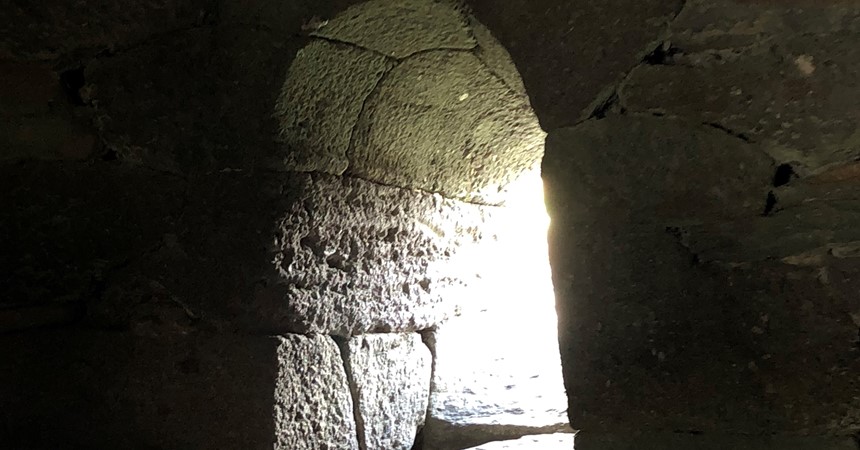Don’t get me wrong, I don’t want these restrictions to continue beyond what is essential. However, I have discovered in our current liturgical experience an opportunity I had not expected. Indeed, I had steeled myself to experience multiple stumbling blocks that further reduced the assembly to consumers rather than celebrants.
We have been reflecting on this question in Liturgy Matters for weeks: do we, the lay faithful, understand ourselves to be celebrants or consumers of liturgy? In the process we have identified many opportunities that enhance our participation as celebrants and also many stumbling blocks that reduce us to consumers.
For the most part this reflection focuses on singing. We are all missing singing, and perhaps to a lesser degree, music, in our COVID restricted Mass. Catholic liturgy is of its nature meant to be sung. Indeed, singing is one of the liturgical elements that facilitates the participation of the whole assembly as celebrants. It is one of the external expressions of our full, conscious and active participation that leads us more deeply into the worship action in which we listen to the Word of God and offer ourselves with Christ, so that we, the body of Christ gathered around the altar, will be changed for the sake of the mission.
So what is the opportunity I have found in not singing? Firstly, it has sharpened my focus on the words of the liturgy, both the words we speak and pray together as the assembly, and the words spoken, prayed and proclaimed by members of the assembly. With the COVID restrictions I am listening to prayers I don’t usually hear at Sunday Mass because we are usually singing. This includes texts such as the Entrance and Communion Antiphons and the beautiful, ancient prayers the presider prays in our name at the Presentation of the Gifts.
Blessed are you Lord God of all creation,
for through your goodness we have received
the bread/wine we offer
fruit of the earth/vine and work of human hands
it will become for us the bread of life/our spiritual drink.
Blessed be God for ever.
I am also finding that I am more conscious of the words we usually sing and now speak. In not singing the Gloria, I have had to concentrate on the words to remember them. I don’t know about you, but the words just come naturally to my mind when we sing, which means that sometimes I am not so conscious of what I am singing. But to speak the Gloria I really have to concentrate. I am finding too that this experience has led me to a more conscious participation in other prayers such as the Creed and the Eucharistic Prayer. I feel like my ears and heart have been opened to hear things anew.
I am hoping that when we are able to sing again with one united voice, I will bring this new attentiveness to singing these words.
Interestingly I am also finding that my voice has found a new strength. I first noticed this in the dialogue that begins the Eucharistic Prayer
The Lord be with you.
And with your spirit.
Lift up your hearts.
We lift them up to the Lord.
Let us give thanks to the Lord our God.
It is right and just.
I am still reflecting on this experience. Perhaps it is partly a response to all those weeks of lockdown when our presence and voice as the lay faithful seemed to be so easily discarded as if it was not essential to the celebration of the liturgy.
Secondly, I am finding the stark beauty of some of the ritual actions has strengthened their power as signs perceptible to our senses. Where I celebrate Mass, for the most part instrumental music is accompanying the processions. There is something about us all standing together silent, listening, watching and then praying the Entrance Antiphon, that sharpens my focus on the procession itself, and on what we are about to do together. I have also noticed some presiders seem to bring an increased reverence or attention to their ritual movement. This enhanced ritual action invites me to be more conscious of my own physical participation in the liturgy: my own standing, kneeling, sitting, bowing, processing. Does my movement and our movement together add to the ritual beauty of the liturgy? Is it a sign of our unity?
Thirdly, the natural rhythm of the liturgy, as a whole and within its various elements, is also enhanced. There is something about the rhythm of a chanted psalm verse with a spoken refrain, the sung alleluia and the spoken verse, that pulls me into the words which are our response to the reading and preparation to hear the Gospel. The measured and prayerful recitation of the psalm has the same impact on me.
The fourth opportunity that has come with the restriction on singing is the increased silence. Silence is a constitutive element of Catholic liturgy, but one that is so often absent. Silence fosters my full, conscious, and active participation as a celebrant. It enhances my spoken and physical responses.
If these are some of the opportunities that are fostering my participation as a celebrant, what then are the stumbling blocks? Our response to the restriction on singing can also cause us to stumble.
As already noted, singing is one of the primary expressions of our full conscious and active participation as celebrants, and of our unity as the Body of Christ gathered around the altar in all its diversity. If then, the assembly cannot sing its part, is it appropriate for a cantor or small choir to take its part? Is it appropriate for the presider to sing when the rest of us can’t? These are liturgical questions that probe beyond what the public health orders allow.
I don’t know about you, but when this happens, I feel that I am being reduced to the role of consumer or silent spectator. If we the people cannot sing during the Entrance Procession, then let us speak our part using the Entrance Antiphon. If we the people cannot sing at communion, then let us pray the Communion Antiphon and be united in silence or listening to instrumental music as we move as one (socially distant) to be fed. If we the people cannot sing the parts of the Mass, then rather than replacing our voice with recorded Mass settings, let us speak our prayer.
Enough has been taken from the lay faithful without taking more. I know musicians will rail against such suggestions. I know liturgists, who insist on the sung nature of liturgy even in a pandemic, will rail against it. That said, the Constitution on the Sacred Liturgy states that the ‘full conscious and active participation by all the people is the aim to be considered before all else’ (a. 14 – emphasis mine) and it explains why this must be,
Mother Church earnestly desires that all the faithful should be led to that fully conscious, and active participation in liturgical celebrations which is demanded by the very nature of the liturgy. Such participation by the Christian people as "a chosen race, a royal priesthood, a holy nation, a redeemed people (1 Pet. 2:9; cf. 2:4-5), is their right and duty by reason of their baptism.
In the restoration and promotion of the sacred liturgy, this full and active participation by all the people is the aim to be considered before all else; for it is the primary and indispensable source from which the faithful are to derive the true Christian spirit; and therefore pastors of souls must zealously strive to achieve it, by means of the necessary instruction, in all their pastoral work.
So as we struggle with all the liturgical compromises the COVID restrictions necessarily require – limited numbers, registration, sitting apart, one reader, one minster of communion, no touching, masks, sanitising – let us not miss the opportunities the stark beauty of Sunday Mass is currently offering us. In this experience I have found a surprising gift that is changing me into a better celebrant of the liturgy. The Holy Spirit is at work.
What are the opportunities and stumbling blocks you are experiencing? What is surprising you? What is God revealing? To what change are we being invited? Keep pondering.
And as you ponder, prepare to for an opportunity to share your COVID liturgical experience. The Diocesan Liturgy Council is working with Dr Miriam Pepper from National Church Life Survey on a survey that will invite you to share your experience and insights about our liturgical experience during COVID-19. It is important that we take this opportunity to listen to the widest possible cross section of the faithful. Watch this space.
Acknowledgements
Prayers and references to the General Instruction of the Roman Missal ¬are from the English Translation of the Roman Missal © 2010 International Committee on English in the Liturgy Inc. (ICEL). All rights reserved.
Photo: Taken from inside Séipéilin Gallaruis (the ‘Gallarus Oratory’), a small stone building about 1300 years old, that was built by early Christians on the Dingle peninsula of Ireland. © Andrew Doohan. All rights reserved. Used with permission.

